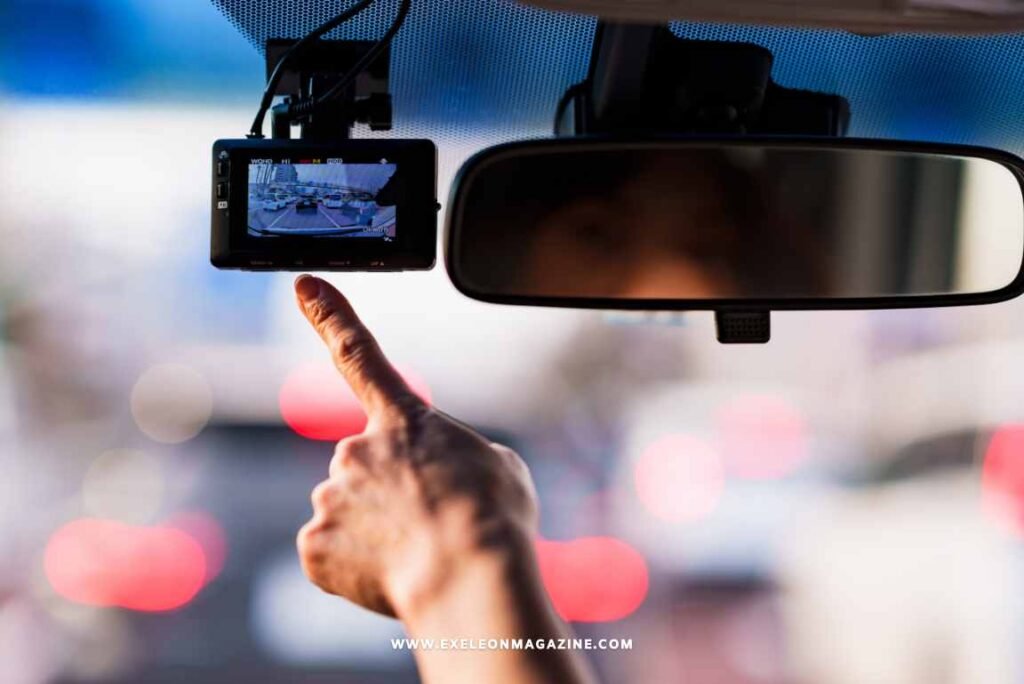After a car accident, questions of fault regularly complicate the road to recovery for victims, both legally and financially. But these days, there is one unexpected piece of evidence that can change the outcome right away: dashcam footage.
Dashboard cameras, which used to be considered little more than a novelty, have become a valuable tool for analyzing car accident cases. Their real-time, unbiased recordings provide compelling proof of how an incident occurred, helping resolve disputes that might otherwise hinge on conflicting accounts. If you’ve been in a car accident and have dashcam footage, the ability to clearly demonstrate fault can be the key piece of evidence your Atlanta car accident lawyer needs to win a personal injury claim.
The Growing Popularity of Dash Cams
Although in the past they were limited mostly to commercial fleets and private enthusiasts, dashcams are now common in personal vehicles, especially in busy metro areas like Atlanta. Affordable and easy to install, they offer high-definition video, GPS tracking, and cloud storage, making them accessible, invaluable tools for documenting what happens on the road.
For everyday drivers, their appeal lies in having a reliable record of events in case of an accident. Atlanta’s heavy traffic and high accident rate only increase that need. Dashcams can capture the behavior of other drivers, like sudden lane changes or hard braking, details that can be disputed in the claims process.
Most importantly, dashcams offer something rarely found in car accident disputes: objective evidence. Memories fade and stories conflict, but video footage provides a clear account of the events leading to a crash.
Pros and Cons of Using Dash Cam Footage
Before relying on dashcam footage to support your case, it helps to know what it can (and can’t) do.
Advantages of Dashcams
- Objective documentation: Dashcams record the facts as they happen, often clarifying who caused the crash.
- Support for insurance claims: Footage can help resolve disputes and discourage claim denials.
- Defense against false allegations: Video can disprove exaggerated or fabricated accounts from other parties.
- Help in hit-and-run cases: A dashcam may capture a fleeing vehicle’s license plate or direction of travel.
Limitations of Dashcams
- Narrow field of view: Most dashcams only capture the front or rear, which may miss important details in side impacts.
- Admissibility concerns: Courts may exclude footage if it’s edited, unclear, or violates privacy laws, especially if it includes in-car audio.
- Potential liability exposure: If the footage shows speeding, distracted driving, or unsafe behavior, it could be used against you.
- Technology gaps: If the device wasn’t recording or the video was lost or corrupted, it won’t help your case.
Even when footage is helpful, it should be carefully reviewed. A knowledgeable Atlanta car accident lawyer can help determine how to use it effectively, or whether to use it at all.
The Role of Dashcam Footage in Car Accident Cases
After a car crash, efforts to determine liability might come down to competing narratives and incomplete or erratic memories. Dashcam footage captures the moments before, during, and after an accident with a level of clarity that human accounts simply can’t match. In cases involving rear-end collisions, unsafe lane changes, or sudden stops, dashcams can reveal behavior that directly supports (or contradicts) claims of negligence.
The role of dashcams can be decisive when compared with police reports or witness statements, especially if inconsistencies arise. It may confirm details officers missed or clarify points that would otherwise be open to dispute. Insurance companies also place weight on clear, timestamped video footage, particularly when it resolves ambiguity about what caused the collision.
Beyond driver behavior, dashcams may document contributing factors like poor road conditions or malfunctioning traffic signals. In some instances, this can even pave the way to third-party liability.
Legal Considerations for Using Dashcam Footage
While dashcam footage is admissible in court as evidence, it isn’t automatically guaranteed a place in legal proceedings or insurance negotiations. Whether or not footage helps your case depends on how it was obtained, what it shows, and how it’s handled after the accident.
For dashcam footage to be legally useful, it needs to meet several key standards:
- Relevance: The video must directly pertain to the accident, ideally capturing the collision itself or the driving behavior that led to it. Irrelevant footage, or clips that only show the aftermath, carry less weight.
- Authenticity: The recording should be original and unaltered. Edited, compressed, or cropped videos can raise questions about credibility and may be excluded from court proceedings.
- Clarity: Footage that is blurry, obstructed, or poorly lit may not be usable. High-definition cameras with wide-angle lenses and night vision capabilities are more likely to capture admissible evidence.
- Privacy compliance: Georgia permits video recording in public spaces, including roads. But audio recordings inside the vehicle may raise issues under wiretap laws, especially if passengers weren’t aware of the recording. Muting the microphone is a wise precaution unless every party consents on the record.
Admissibility in court can also vary by jurisdiction, even by courtroom. A judge has the discretion to reject evidence that doesn’t meet foundational standards. Consult with a car accident lawyer who understands how to authenticate, submit, and defend the use of dashcam recordings as part of your claim.
The Role of a Car Accident Attorney in Helping Prove Liability
Even with dashcam footage of a car accident, proving fault can still be a challenge. Insurance companies may downplay the video’s significance, challenge its interpretation, or argue that it shows shared responsibility. A skilled Atlanta car accident lawyer can step in to evaluate the footage, identify what supports your claim, and present it strategically, either to an insurer or in court.
Attorneys help verify that footage is preserved, authenticated, and submitted properly. If the video reveals broader issues, like dangerous road conditions or a driver admitting fault at the scene, your lawyer can pursue all available avenues for compensation. And when the other side tries to shift blame, legal counsel can push back with a clear, evidence-based narrative supported by your dashcam.
Ultimately, an attorney’s role is to turn raw video into usable proof that can strengthen your claim, challenge denial tactics, and increase your chance of a fair outcome. Partner with a knowledgeable law firm to make sure the evidence is handled properly, and your claim is supported every step of the way.










